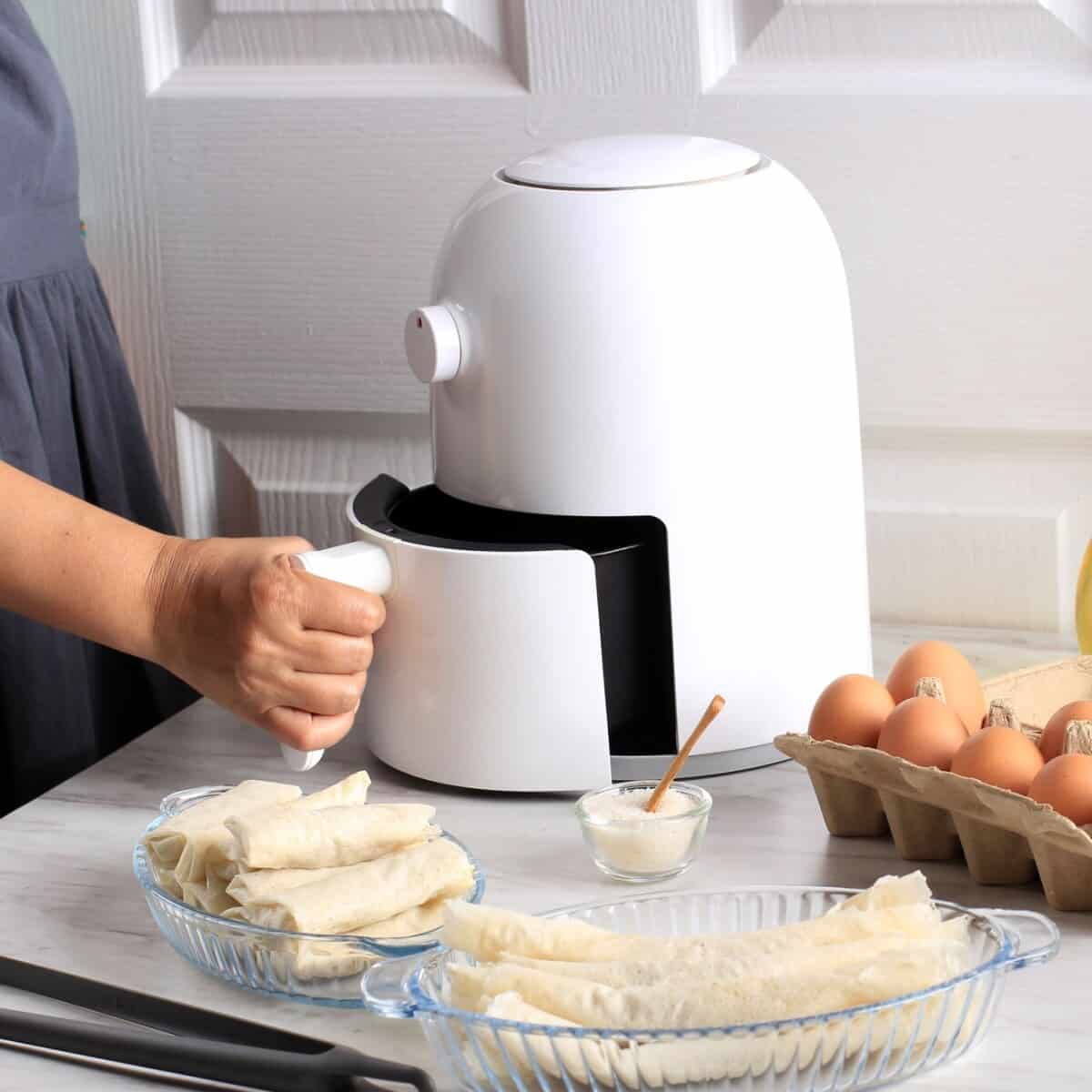
Over half of Americans own an air fryer. It's a convenient appliance, and it allows you to cook food relatively quickly without much hassle.
The food it cooks is touted to be healthier than food prepared with certain other methods, namely deep frying. But are air fryers really worth it?
Let's take a look at some of the factors to consider when deciding whether this purchase is right for you.
Jump to:
- Understanding the Air Fryer Hype
- How Air Fryers Work: The Science Behind the Crisp
- Are Air Fryers a Healthier Alternative?
- Comparing Hot Air Frying to Traditional Frying
- Air Fryer Versatility: What Your Air Fryer Can and Cannot Do
- Do Air Fryers Compromise Taste?
- Energy Efficiency and Environmental Impact
- Durability and Maintenance of Air Fryers
- The Cost of Buying and Using an Air Fryer
- Considering Counter Space and Appliance Clutter
- Tips on Maximizing Your Air Fryer's Benefits
- Pros and Cons of Using an Air Fryer: An Overview
- Making Your Decision: Is an Air Fryer Worth the Investment?
Understanding the Air Fryer Hype
An air fryer comes with a lot of promise: According to the hype, you can make fried chicken, French fries, mozzarella sticks, and chicken wings in a healthier way than deep frying them.
These types of comfort foods are generally seen as unhealthy, and they usually do contain a lot of fat and calories, but you can negate that somewhat by not cooking them in oil, which is one hallmark of the air fryer cooking experience.
In addition, air fryers cook food relatively quickly. An air fryer doesn't need a lot of preheating time the way a conventional oven does, and it doesn't need to be constantly monitored the way a deep fryer or a pan on the stove does.
You can truly "set it and forget it" as long as you come back and turn the food halfway through the cooking cycle.
Finally, people enjoy new gadgets, and while the air fryer isn't new (and neither is the science behind it), it's something that tech-savvy people and home cooks tend to like.
How Air Fryers Work: The Science Behind the Crisp
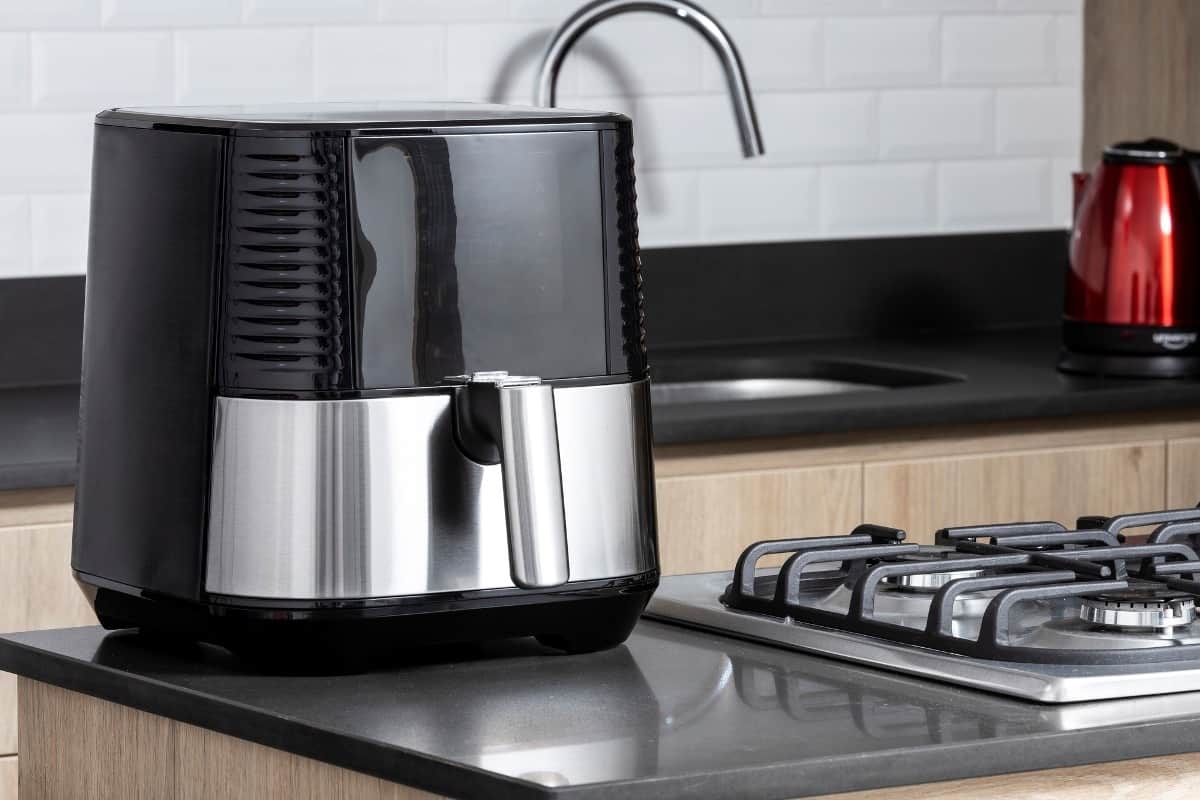
Before deciding if an air fryer is worth the cost, let's look at the science behind getting that delicious crispy texture without relying on submerging the food in hot oil.
An air fryer works much like a convection oven. It relies on hot air and air circulation to cook the food. If you're into science, you might be interested in learning that it creates a Maillard reaction, which is responsible for browning and crisping food, something we associate with fried foods.
Are Air Fryers a Healthier Alternative?
Since there's no oil (or very little oil) used in air frying, it is generally a healthier alternative to deep frying. The calories and fat grams in air fryer recipes will be lower than what you'd find in a comparable deep frying recipe.
So, in that aspect, yes, air fryers are healthier than deep fat frying.
With that being said, however, the general health and nutrition of any recipe have to do with the ingredients you use. Neither air fried nor traditional fried foods are going to be healthy if they contain unhealthy ingredients.
For example, chicken wings in the air fryer are less fatty and caloric than deep-fried chicken wings, but they're not healthier than a fresh salad or oven-roasted vegetables.
Comparing Hot Air Frying to Traditional Frying
There are several differences to keep in mind when comparing air fried and traditional fried foods. The main one most people think of is health, but there are others as well.
One is the mess or lack thereof. When you're cooking food in a deep fryer, you'll end up with spatters and splashes. This isn't an issue with an air fryer.
Clean-up is easier with an air fryer. You simply wash out the air fryer basket. When using a deep fryer, you have a lot of oil to deal with, and the clean-up process is more time-consuming.
When it comes to flavor, traditional frying does impart a richer flavor and can result in moister, more tender food. Air fryer food can be a little dryer, and it won't have the taste of the oil included.
Air Fryer Versatility: What Your Air Fryer Can and Cannot Do
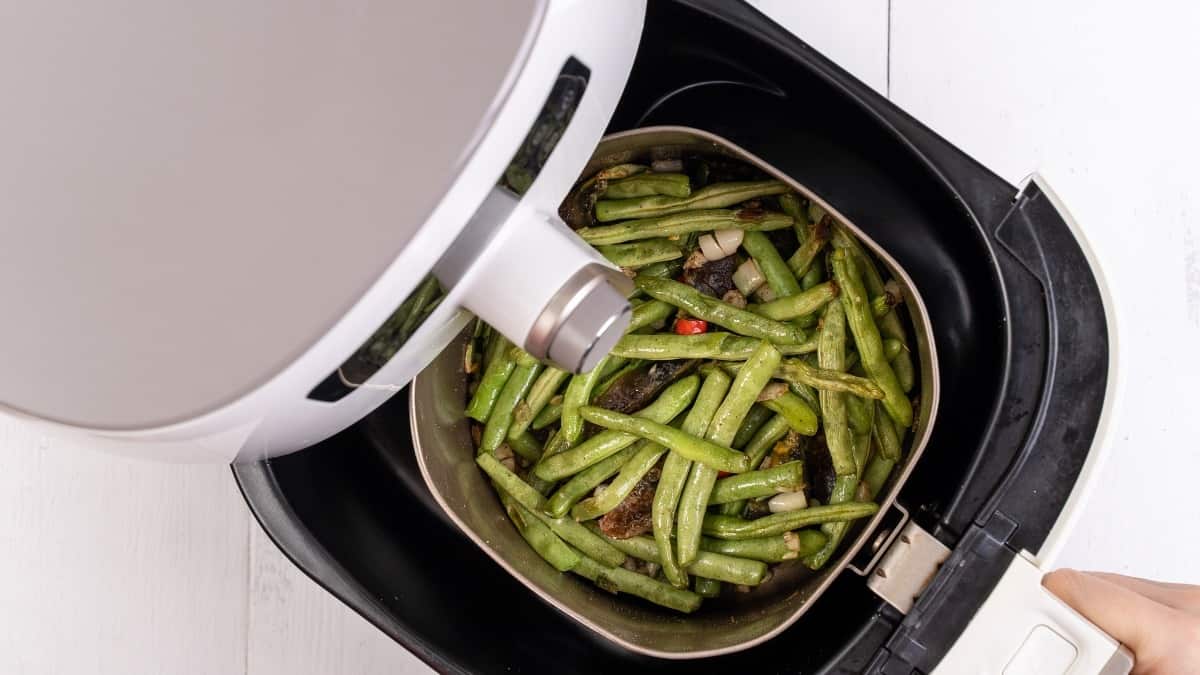
Air fryers are versatile, and they can take on a lot of cooking tasks. However, this kitchen appliance isn't a panacea for any and all cooking challenges.
Here are some of its capabilities, as well as some cooking methods you would be better off finding a different solution for.
What Your Air Fryer Can Do Well
An air fryer can transform many types of ingredients into delectable and crispy morsels. Many of these foods are a great alternative to traditionally fried food. For example, you can air fry frozen foods like frozen French fries, pizza rolls, and chicken nuggets.
You can also roast vegetables similarly to how you would in toasters or conventional ovens, only in less time. Many air fryers have the capacity to handle large items like a whole chicken; you could definitely roast up some chicken thighs even in a smaller air fryer model.
Baked goods are possible in the air fryer, too. You may need to experiment with the cooking time, as it will differ from when you bake items in the regular oven. Also, you may have trouble getting delicate recipes like cakes to bake evenly.
One thing an air fryer is excellent at is reheating leftovers. You can pop a slice of pizza or leftover wings in for a few minutes, and they'll taste just as fresh as they did originally.
What Your Air Fryer Can't Do Well
There are some foods you would do better to cook in a different way. For example, anything that requires significant moisture or steam wouldn't be a good candidate for the air fryer.
Batters will drip through the air fryer basket and will tend to make a mess. And items like fish fillets might dry out because they're thin and delicate.
So, while an air fryer can certainly meet a lot of your kitchen needs, it can't meet them all.
Do Air Fryers Compromise Taste?
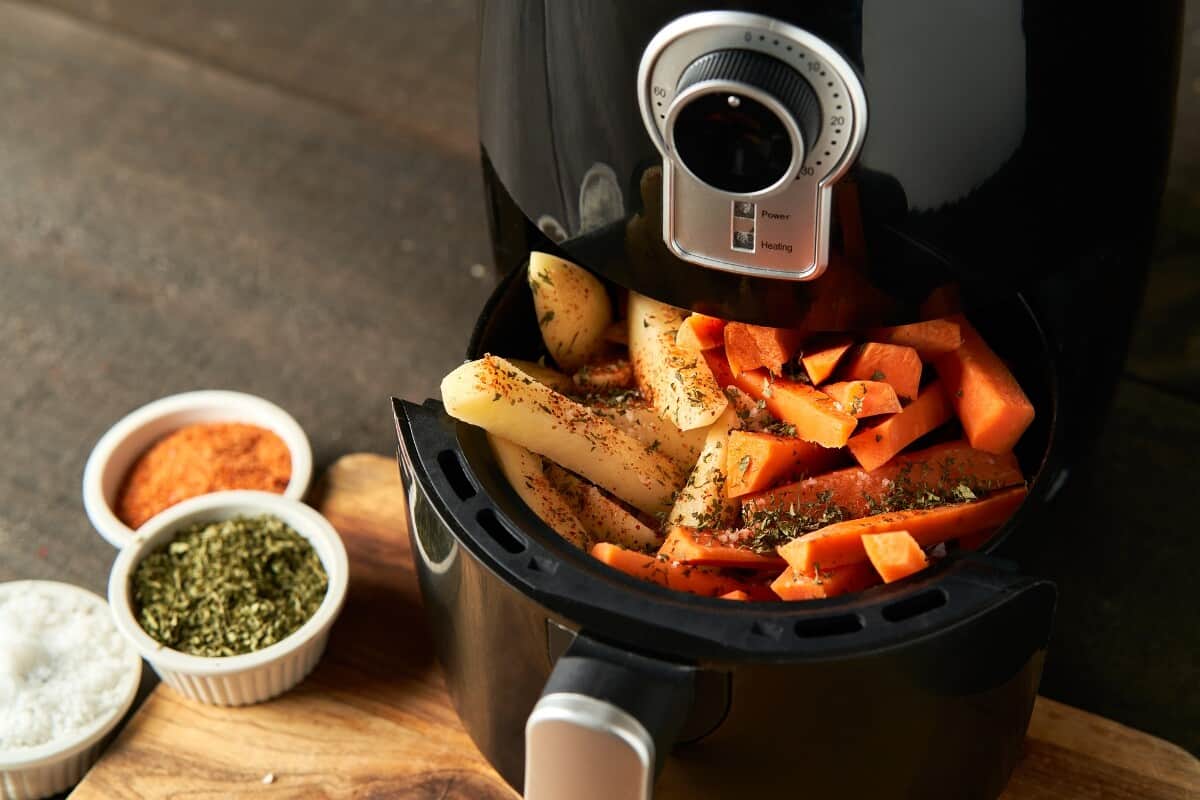
If you can picture yourself biting into a deliciously tender piece of perfectly battered and fried chicken and hope to replicate that experience with your air fryer, I'm afraid you might be a bit disappointed.
While an air fryer can produce crispy exteriors thanks to its ability to circulate hot air, the depth of flavor is simply not the same.
There's no absorption of oil, which creates a layer of flavor that's unmatched by the air fryer.
So, while you're undoubtedly getting a superior meal when it comes to health, the heating element of an air fryer is simply not a match for immersion in vegetable oil when it comes to taste.
Many people find the tradeoff to be worth it, but some don't. Adjusting the seasonings you use and the cooking times and temperatures might help you achieve something closer to what you might expect from a deep fryer, but the truth is, it won't be an exact match.
Energy Efficiency and Environmental Impact
Another question to consider is whether an air fryer is adequately energy-efficient and eco-friendly. Many people are aware of sustainability and have some sense of environmental responsibility. Some have switched from gas to electric ovens, for example, in an effort to reduce their environmental footprints.
While it depends on the specific air fryer model, these small appliances are generally touted as more energy efficient than conventional ovens and even toaster ovens. They preheat rapidly and have short cooking times, so electrical consumption is limited.
The ability to use less oil also helps reduce the amount of emissions as well as the environmental concerns related to producing and transporting oil. In this way, air frying is more ecologically friendly than deep frying.
Of course, purchasing a new appliance can enlarge your carbon footprint. Look at different air fryer models to find one that's energy efficient, and take good care of it so it lasts a long time.
Durability and Maintenance of Air Fryers
Air fryers are pretty simple machines, which makes them durable. They're built with reliable components such as nonstick cooking surfaces, a nonstick air fryer basket, and high-quality heating elements and fans. With regular use, your air fryer should last for many years.
If you decide to invest in one, using, storing, and cleaning it properly will help maintain its longevity. Prevent the buildup of food residue that can cause overheating and even rusting by cleaning it well after each use.
You can often put the basket in the dishwasher. Otherwise, it's easy to hand wash the basket and tray with a soft sponge and mild dish soap.
By following basic maintenance rules like keeping the appliance in a cool, dry location and using it as directed, you'll be improving the chances that your air fryer will have a nice, long lifespan.
The Cost of Buying and Using an Air Fryer
When determining an air fryer's worth in your kitchen, you'll want to know the cost of both buying and using an air fryer.
The price of an air fryer will depend heavily on the brand, size, features, and quality. More expensive models might have a range of cooking options, while less expensive models might only have the air fry function and lack other settings, such as roasting or baking.
Air fryers cost anywhere between about $50 and $200. Some might be more or less than that, but that's a general range. You can also get one used. Check yard sales, thrift shops, and secondhand stores if you're interested in this option.
Air fryers, in general, are pretty energy efficient, so if you're using it instead of your conventional oven, you might notice a slight decrease in your electric bill.
If you're using it in place of a deep fryer, you'll notice a lower grocery bill as far as buying vegetable oil goes.
So, you might find that the initial cost of an air fryer will balance out in the cost savings relatively quickly.
Considering Counter Space and Appliance Clutter
Another consideration to keep in mind when deciding whether an air fryer is worth it is how much space you have in your kitchen.
Many people prefer to keep their air fryers out and ready to go, so if you lack counter space for either storing or using your appliance, this can become an issue.
You also might not be able to fit a standard-sized air fryer in your cabinet, so a lack of counter space can make it difficult to put it somewhere suitable.
Think about how many gadgets you already have before committing to buy another kitchen appliance. Buying one more appliance that will be used rarely might be an indication that it wouldn't be worth it for you.
Tips on Maximizing Your Air Fryer's Benefits
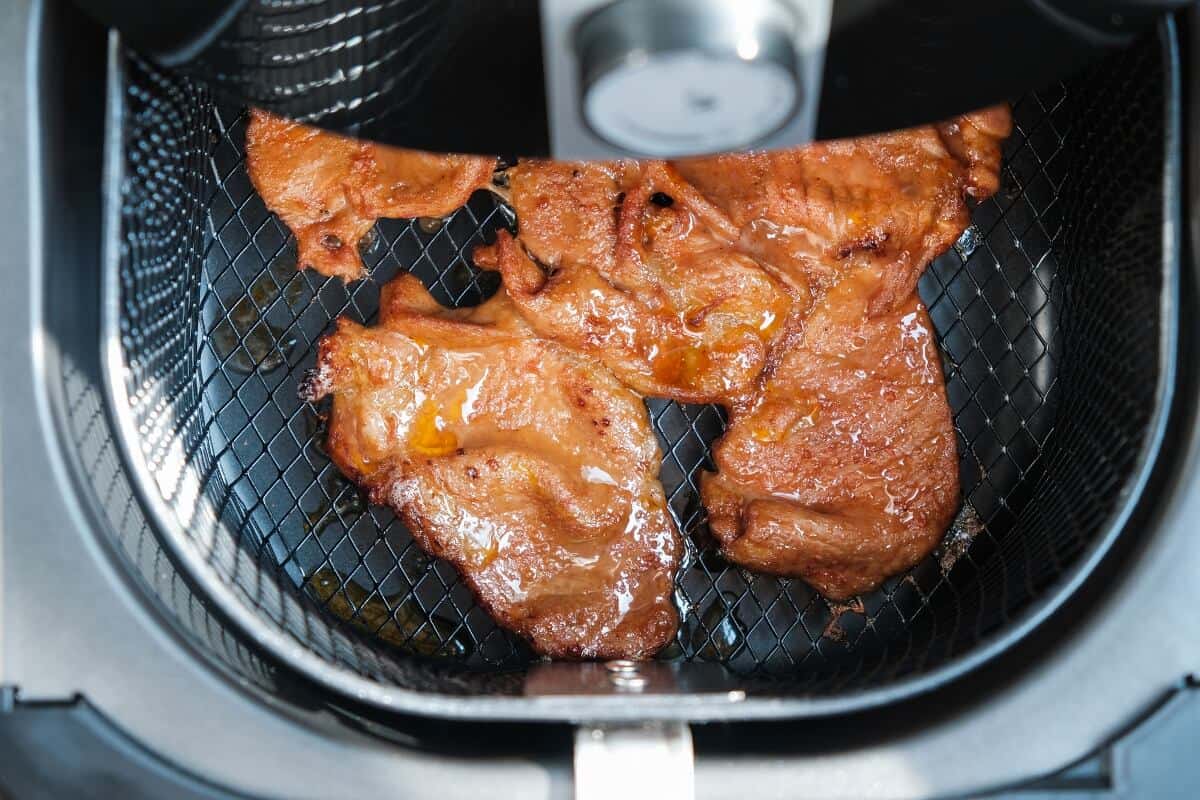
If you're going to buy an air fryer, it makes sense to do what you can to maximize the benefits of the appliance. Here are some tips to make it more valuable.
1. Always preheat your air fryer.
You want your air fryer to cook evenly, so it's important to get it preheated to the proper temperature before adding your food. This will also add to the crispness of the finished product.
2. Don't pack the air fryer too full.
In order for the air to properly circulate through the perforated basket, you'll need to leave some space between each item. Aim for a single layer, and don't let everything touch.
3. Experiment to get the results you want.
Not every recipe will turn out amazing the first time you try it, but that's no reason to throw your oven mitts up in the air and give up. Instead, try again with a longer or shorter cooking time or perhaps a higher or lower temperature.
4. Don't be afraid to use a little oil.
You aren't going to add a thick layer by any means, but a spritz of cooking spray can go a long way toward adding a little flavor to your food and also helping it crisp up faster.
5. Don't completely walk away.
You should stay in the general vicinity for two reasons. The first is safety; never run a kitchen appliance and leave it completely unattended.
The second is so you can rotate the food and/or shake the basket occasionally. This can prevent uneven browning and lead to more consistent taste and crispness.
6. Don't open your air fryer too often.
Yes, you do need to shake the basket a few times, but you don't want to keep peeking. Let the hot air build up in the fryer and do its job without you letting it out every few minutes.
7. Don't forget the seasoning.
While air frying will make a nicely browned texture on your meats and veggies, you will still want to season everything liberally.
8. Consider using liners or parchment paper.
To make cleanup even easier, you can line the basket with parchment paper, foil, an aluminum pan, or a silicone liner. If you're using parchment paper or foil, consider perforating it to enhance air flow.
Clean your air fryer regularly. After each use, wash the basket and tray, and use a damp cloth to wipe off the cooled heating element to ensure there's no food debris or splatter hanging around.
Pros and Cons of Using an Air Fryer: An Overview
Are you still not sure how to answer the questions of are air fryers worth it? Here's an overview of the pros and cons of using an air fryer that you can consider.
Benefits of Air Fryers
- Healthier cooking: You can produce deliciously crisp and crunch food without using a lot of oil, which can lead to lower calorie intake, lower fat intake, and overall better health.
- Quick cooking: Air fryers cook food rapidly, definitely faster than conventional ovens. If you're busy and need to get something on the table quickly, an air fryer can help with that.
- Reduced mess: You won't be dealing with splatters and spilled oil like you might with a deep fryer. Also, you won't have that oily smell lingering in your home.
- Energy efficiency: Air fryers are more energy efficient than ovens and deep fryers. You might notice lower electric bills over time.
Drawbacks of Air Fryers
- Less rich taste: If you're comparing air fried foods to traditionally fried foods, you won't get the same complexity of taste with an oil-free cooking method like air frying.
- Learning curve: Just like anything else, investing in an air fryer will require you to learn how to use it. This can take some experimentation as you get to know your new appliance.
- Counter space considerations: Most air fryers do live on the counter, so if you're low on kitchen space, this can become an issue.
- Limited capacity: While some air fryer models are large, most can cook enough food for a family of three or four at one given time. If you frequently cook for a crowd, you might not find the air fryer's capacity to be adequate.
Making Your Decision: Is an Air Fryer Worth the Investment?
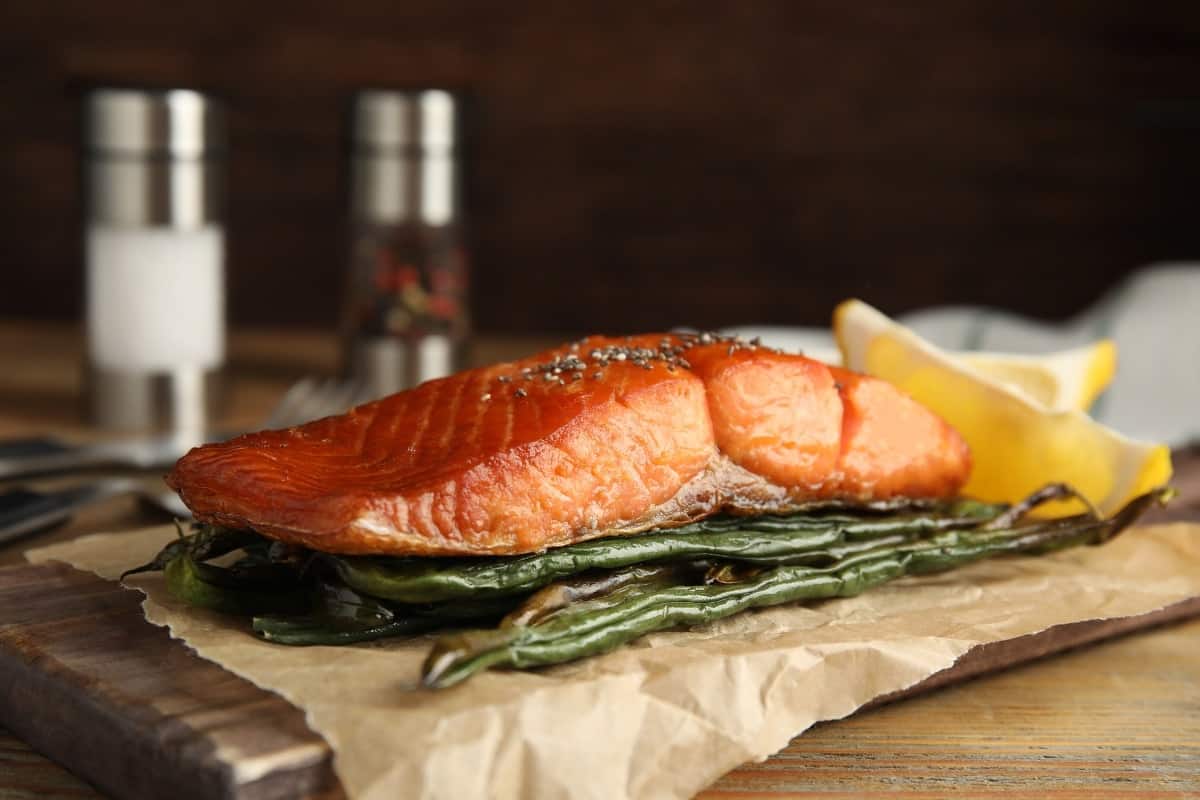
Only you can really decide if an air fryer is worth the investment. You'll want to think about a few different factors, such as how often you'd really use a new appliance, whether you have certain health goals, what your budget is, the amount of space you have available, and whether you're willing to learn how to use a new appliance.
Many people do feel that the purchase of an air fryer is worth it. If you don't think it is, you might want to look into options such as toaster ovens, convection ovens, or an instant pot. All of these will also have their benefits and drawbacks, of course, so it's important to do your research.
I can say that for myself and my family, we do enjoy having an air fryer. We have enough counter space, and we enjoy learning how to use new cooking techniques. We also like having the opportunity to make things like frozen chicken wings and oven fries in a healthier way.
Remember, an air fryer is just a tool. It can enhance your experience and introduce you to different tastes and textures. Whether you decide to try it out for yourself is part of your own culinary adventure!


Leave a Reply